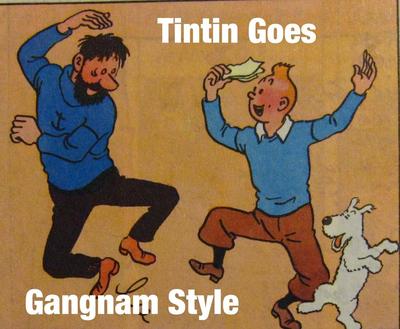
"Gangnam Style," the enticingly ridiculous Korean pop song, music video, and associated dance created by a Korean rapper known as Psy has taken Asia, and the world, by storm. On September 20, 2012, Guinness World Records recognized "Gangnam Style" as the "Most 'Liked' Video in YouTube History." It has hit a #1 chart position in 11 (mostly European) countries and #2 in the U.S. It has attracted more parodies, covers and tributes than this blogger cares to count, much less watch. Even the stock market value of Psy's father's money-losing semiconductor firm has gone through the roof. The success of such an entertainingly frivolous bit of culture from such a small Asian country might seem odd. Yet, its popularity, and that of South Korean culture more generally, has a great deal to do with the politics, economics and history of Asia.

Starting in the 1990s, there has been recognition of a "Korean Wave" of culture that has propelled Korean TV, film, music and celebrities to popularity in Asia. This makes a certain amount of sense, as Korea is, historically, geographically, linguistically, and culturally, a mid-point between the two titans of East Asia, Japan and China. Gangnam, for example, the posh district of Seoul for which the song is named, is very close to the Chinese jiangnan (江南), literally "south of the river." And, as a country that has gone from rags to riches since the Korean War, South Korea has tremendous appeal for still-developing Asia. Yet, its dominance is also a product of difficult regional politics that hamper the success of the cultural exports of other rich Asian countries. Recent unrest in China over some uninhabited bits of rock demonstrate that the ill-will towards Japan built up in the first half of the 20th Century still has not completely dissipated and that Japan is nervous about the rise of the Chinese leviathan. Likewise, Taiwan's position vis-à-vis the People's Republic of China makes its culture politically tricky. Hong Kong used to play a role as a hub for culture in Asia (especially film), but its return to China coincided with Korea's rise as the new cultural center. This means that fairly small, rich and inoffensive South Korea is the Belgium of Asia -- which makes "Gangnam Style" its Tintin.
The Adventures of Tintin, a phenomenally popular comic that has sold hundreds of millions of copies, been translated into dozens of languages, and recently made into a movie by Steven Spielberg, is another wildly successful quirky cultural export that owes its popularity to a particular historical, political and economic situation. During the peak of Tintin's success, Europe, like Asia now, was still nursing wounds from the Second World War, which made the cultural products of recent bitter foes difficult to swallow. Additionally, the rising Soviet Bloc and Western Europe viewed each other with mutual suspicion. Belgium, however, was just small, rich, and politically inoffensive enough to allow for the meteoric success of the adventures of a boy reporter and his dog, Snowy.
No doubt some Tintin fans will balk at this comparison. But "Gangnam Style" is not quite as frivolous as it might appear. Psy, whose real name is Park Jae-sang, attended Boston College and Berklee College of Music, seems to be poking fun at the conspicuous consumption epitomized by Seoul's uber-wealthy Gangnam neighborhood. Besides, even Belgians are apparently taking "Gangnam Style" seriously, giving it a # 1 position on the charts and calling its signature horse dance move "a metaphor that represents man's desire to be rich."
"Gangnam Style" is one more sign of the profound shift in global gravity created by a rising Asia. As Asia increasingly comes to dominate the world economically, its tastes and fashions will dominate world culture. "Gangnam Style" is probably a passing fad, but the global influence of Asian culture may prove as timeless as Tintin.

